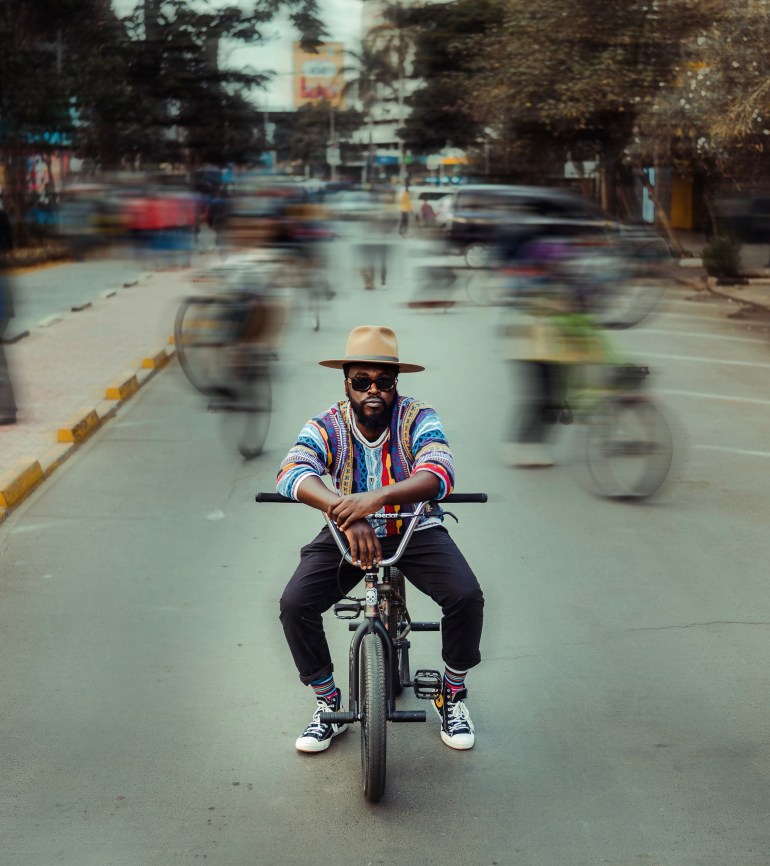Nairobi, Kenya – In November 2023 when the Grammy Awards introduced 5 inaugural nominees for the Greatest African Music Efficiency class, solely South Africa and Nigeria have been represented. The information sparked a debate concerning the persevering with development of up to date music from each nations – Amapiano and Afrobeats – dominating the continent of 54 nations.
This was particularly so in Kenya. The East African nation is among the continent’s cultural heavyweights and so typically a pacesetter in lots of different sectors. But, in most elements of Africa and the world, dance flooring and airwaves are devoid of Kenyan music.
Among the best-known names at present like boy band Sauti Sol have achieved some stage of crossover throughout the continent and clinched Grammys off of their work with their Nigerian and South African counterparts. However their fame and attraction nonetheless lag behind that of their counterparts.
Even inside Kenya, Amapiano and Afrobeats take pleasure in frequent airplay. Bongo Flava, a style from close by Tanzania, can also be fairly common, maybe partially as a result of the songs are in Swahili, the primary language in each nations.
When Common Music Group (UMG) introduced the launch of Def Jam Africa in 2020, the label introduced areas in Nigeria and South Africa, however promised to signal music from all around the continent. Different huge file firms like Warner Music and Sony Music have additionally arrange store in each nations. Whereas a number of the artists signed do come from exterior of these music hubs, Kenyans have but to interrupt in.
To Tabu Osusa, a Nairobi-based writer, music producer and file label government, the rationale for Kenya’s absence on the continental centre stage is evident.
“Kenyan music has no identity,” he instructed Al Jazeera.
Id, in keeping with Osusa, is a sound but in addition a generational lineage; teams of melodies, turns of phrase, and rhythms that move from one 12 months to the following. Afrobeats and Amapiano have these and are distinctively African, he provides. By comparability, there isn’t any present equal in Kenya.

A shrinking identification
Kenyan music was once characterised by the distinct plucking sound of a guitar, strummed to mimic a conventional eight-string lyre. When it was heard, everybody may inform what it was: Benga music. Derived from the Luo phrase for magnificence, Benga took maintain of Kenya within the 50s to 60s and unfold throughout the continent throughout the 70s.
Musicians transferred the sounds of conventional Western Kenyan songs to the guitar, creating the distinct pluck, pluck, plucking sound Benga is understood for.
Osusa blames colonialism for the style’s disappearance.
“When we gained our independence [in 1963], our fathers left everything in the village,” he mentioned, referring to a migration to city areas within the Seventies. “Our culture, our food, our sense of dress, our music. They moved to town to start afresh, and if anyone brought anything from the village they were labelled as mshamba – meaning from the village.”
“I don’t know why we didn’t move our culture to the cities,” mentioned Osusa. “Nigerians did, and that’s why they’ve been able to make village life funky and sexy [through their music]. The Nigerian musicians always appreciated those who were before them – so there’s that continuity from the days of the Juju music to Afrobeats.”
Invoice Odidi, a music author for Enterprise Each day Africa and radio presenter for Music Time in Africa, agrees with Osusa’s speculation. Kenyans misplaced their musical traditions and with that, their possibilities of coming into the mainstream, he says.
However he additionally believes the political and financial state of affairs within the early days of post-independence Kenya didn’t “allow for music to thrive”.
“Indigenous culture was really suppressed by the settler community,” mentioned Odidi. “The guys who came into power after independence just carried on with the same sort of policies. They admired the Western and the British way of life [more] than they did their own.”
Caught in a loop
Colonialism isn’t the one factor holding Kenyan musicians again – in keeping with Kenyan musicians.
One downside is the apprehension to outline music as a profession.
“A lot of artists are hesitant to go into music full time,” mentioned Maya Amolo, a Kenyan R&B singer recognised as one among Spotify’s Recent Finds Africa artists in 2022. “The issue is that we’re just not developed as an industry. South Africa and Nigeria, they’ve been building and evolving their music industry for a very long time and we have not. Without a functioning industry with some form of structure, you’re not going to make any money.”
This creates an inevitable loop: the business is underdeveloped as a result of individuals don’t pursue artwork full-time. Individuals don’t pursue artwork full-time as a result of the business is underdeveloped.
“Blinky” Invoice Sellanga, frontman of Kenyan different group Only a Band believes Kenyan followers and the native music business must do extra for the artistes.
“We haven’t rallied behind Kenyan music,” mentioned Sellanga. “The mic traditionally hasn’t been given to us. Nigeria and South Africa, even the Congo have had a music industry for so long. They’ve been able to really hone their sound, and they stand behind their sound. Kenyan DJs push Afrobeats and Amapiano. Nigerian DJs aren’t doing the same for us.”
The artists cite extra causes for East Africa’s incapacity to interrupt out on the mainstream: in contrast with Nigerians, fewer Kenyans wish to depart the nation (45 p.c versus 19 p.c in keeping with the Pew Analysis Middle) resulting in much less of an exportation of Kenyan tradition.
Studios in Kenya are underfunded, and the manufacturing high quality can, at occasions, be years behind different African nations. Some say the Kenyan music scene is outlined by chasing the success of Nigeria and South Africa.
Sellanga believes that regardless of this, the dearth of a unifying sound is what makes Kenya an amazing place to develop and be taught as an artist.
“Kenyan music is more regional, for sure,” mentioned Sellanga. “The Kenyan sound that is around varies from place to place. The beauty of these differences is what makes us special. Just A Band couldn’t have existed in any other country in Africa.”

‘They want to listen’
To rediscover the Kenyan sound and get individuals to hear, some artists are consistently working to prioritise their tradition.
Shipton Onyango, who goes by his stage identify Winyo, has been a Benga artist for greater than 15 years. “I want to put an emphasis on Benga music, only make it fresh and new to a global market that can identify with it,” mentioned the singer who works with Osusa’s Ketebul Music.
Whereas Winyo agrees with a lot of Osusa’s speculation, he additionally concurs with a few of his friends that the hassle to convey Kenyan music to the primary stage must focus much less on a revival of the previous and extra on the sounds of the current.
Among the new music being made is Benga, a few of it isn’t. However not sufficient individuals are listening but.
“People want to know what Kenyan sound is and how to work with it,” mentioned Winyo. “I think a lot of musicians in the industry have gone back to the drawing board. They want to know what Kenyan sound is. You would be shocked to find out a lot of Kenyans like Kenyan music. They want to listen to it. There is a market out there.”

